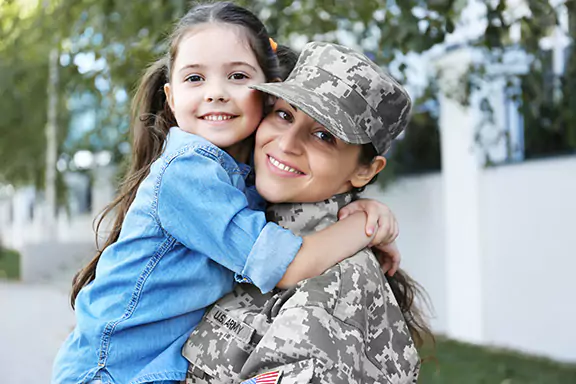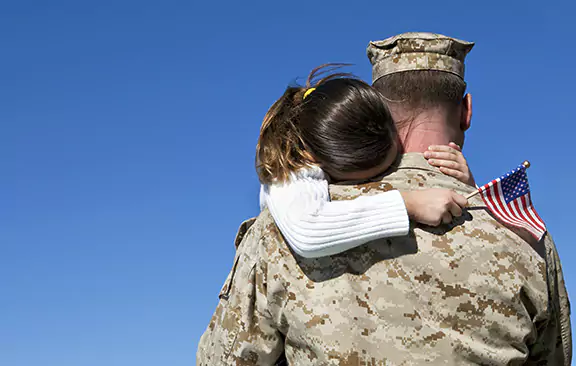While transitioning back to civilian life, many veterans may face financial, physical, and emotional challenges. Some struggle to find steady employment, others may have to cope with service-related disabilities and associated healthcare costs.
Similarly, surviving family members can encounter severe economic strain and emotional trauma in the aftermath of their loss, making it exceptionally difficult to maintain a decent quality of life.
This is where the veterans pension and survivors benefit programs play a critical role. By providing a reliable source of income every month, these benefits offer a much-needed safety net that can help alleviate the financial burdens veterans and their families may face.
Beyond the direct financial assistance, qualifying for these benefits programs also opens the door to a range of other government support. In this blog, we’ll walk you through the ins and outs of these benefits and giver you a clear picture of the assistance and additional resources you may receive.
Veterans Affairs (VA) Pension Benefits
The Department of Veterans Affairs’ pension benefits include Veterans Pension and Survivors Pension, which are available to specific wartime veterans and their survivors separately.
Veterans Pension
The Veterans Pension program provides monetary benefit to eligible wartime veterans who meet certain age or disability, and income and net worth requirements.
To qualify, you need to meet a set of requirements, including:
You didn’t receive a dishonorable discharge
Your yearly family income and net worth must meet certain limits
You must have served at least 90 days of active military service with at least one day during a period of war
You should be 65 or older or have a total and permanent disability, or
You’re receiving Social Security Disability Insurance or Supplemental Security Income
Currently, eligible wartime periods for VA pension benefits include Mexican Border period, World War I, World War II, Korean Conflict and Vietnam War era, and Gulf War. You can find more information about eligibility requirements here.
How to apply?
If you find yourself qualify for the tax-free benefit, prepare the following documents and information to fill out your application online, upload your application form to designated portal, mail it to Department of Veterans Affairs or submit your form to a local regional benefit office.
Social Security number
VA file number (if applicable)
Military history
Marital history (also spouse’s marital history for those who are married)
Work history
Information about your dependents
Household’s gross monthly income
Household net worth
Unreimbursed medical expenses
Medical records for those who are under age 65
Survivors Pension
Survivors Pension (formerly called Death Pension), is a tax-free monetary benefit for an eligible surviving spouse or child(ren) of a deceased wartime veteran. It provides a monthly benefit to help cover basic living expenses.
To be eligible for this benefit, the veteran must served at least 90 days of active service, with at least one day during wartime. Qualified surviving spouses or child(ren) must meet certain financial and marital status criteria at the same time, including:
Countable income for VA purposes is below the amount specified in the Survivors Pension Rate Table
Net worth meets certain limits set for the Community Spouse Resource Allowance (CSRA)
Unmarried surviving spouse
Unmarried surviving child of a deceased veteran, including those who:
Are under the age of 18
Became permanently disabled before age 18
Are between 18 and 23 years old and enrolled in an VA-approved school
How to apply?
Eligible survivors can apply for the benefit online, by mail, or in person at a local regional benefit office. It’s worth noting that VA now recommends submitting applications electronically to ensure a more efficient process.
There are different tools to help with electronic submission. You can either submit documents and claims electronically or upload documents using Direct Upload. More information about the application methods can be found here.

VA Survivor Benefit Plan
A Veteran’s surviving spouse, spouse, dependent child or family caregiver may qualify for a range of VA benefits, including health care, employment, education and training, and more. Below are some of the benefits you may be eligible for:
Health care
There are different types of health care programs for spouses, dependent children, surviving spouses, or surviving children of qualifying service members or veterans:
TRICARE: Comprehensive health care coverage for family members of active-duty, retired, or deceased service members, National Guard soldiers, Reservists, or Medal of Honor recipients.
The Civilian Health and Medical Program of the Department of Veterans Affairs (CHAMPVA) program: Health insurance for family members or surviving family members of a disabled veteran and a veteran died in the line of duty. It covers certain health care services and supplies costs.
The Program of Comprehensive Assistance for Family Caregivers (PCAFC): Support and services for family caregivers of eligible veterans, including a financial stipend, access to health insurance, caregiver training and more.
The Camp Lejeune Family Member Program: Health care benefits for family members of active-duty veterans who have exposed to contaminated water from August 1953 through December 1987 at U.S. Marine Corps Base Camp Lejeune or Marine Corps Air Station (MCAS) in North Carolina.
The Spina Bifida Health Care Benefits Program: Disability benefits for biological children of Korean or Vietnam war veterans who have been diagnosed with spina bifida.
The Children of Women Vietnam Veterans (CWVV) Health Care Benefits Program: VA health care benefits for biological children of women Vietnam war veterans who have been diagnosed with certain birth defects.
Pharmacy benefits: Additional prescription benefits for eligible recipients of CHAMPVA, the Spina Bifida or CWVV program.
Education and training
Survivors’ and Dependents’ Education Assistance (DEA): Financial assistance for school and job training related costs for children or surviving spouses of veterans, captured/missing/deceased veterans, or those who have service-connected disabilities. Details of the eligibility requirements and application procedures can be found here.
Fry Scholarship: Scholarship for the child or surviving spouse of a veteran or service member who died in the line of duty or from a service-connected disability on or after September 11, 2001.
Transferred education benefits: Education benefits for specific programs for the child or spouse of a veteran or service member who has requested a transfer of education benefits while on active duty or in the Selected Reserve.
If your spouse is totally disabled, missing in action or become a prisoner of war, you may receive a Certificate of Eligibility (COE) and be eligible for the VA-backed home loan to buy, build, repair, or refinance your home.
Dependency and Indemnity Compensation (DIC)
VA provides a tax-free monetary benefit known as the DIC for qualifying surviving dependents of deceased service members and survivors of veterans who died from service-related injuries or illnesses.
Eligibility requirements can vary depending on the applicant’s relationship to the veteran. You can easily check if you or your family members may be eligible for this benefit by visiting the VA’s website.
Once you’ve confirmed your eligibility, you have a few options for filling the application. You may choose to work with an accredited attorney, claims agent, or Veterans Service Organization (VSO) representative to guide you through the process. Alternatively, you can use the VA’s online application tool or mail the completed form directly to the VA office.
VA Aid and Attendance benefits and Housebound allowance
If you are receiving a VA pension and meet additional requirements set by the VA Aid and Attendance and Housebound benefits, you may qualify for additional monthly allowance to help with daily needs.
You may be eligibility for VA Aid and Attendance benefits if you need another person to help with daily activities, have to stay in bed due to illness, stay in a nursing home due to the loss of mental or physical abilities related to a disability, or visionally impaired.
You may be eligibility for Housebound benefits if you have to stay in your home most of the time because of a permanent disability.
You can apply for VA Aid and Attendance or Housebound benefits in person at a nearby VA office or by mail to your pension management center (PMC).
Getting More Benefits as Veterans
As a veteran, qualifying for benefits like the Veterans Pension and Survivor Benefits Programs can open the door to accessing even more government support, including discounted or free mobile and internet services through the Lifeline Assistance Program (Lifeline).
What is Lifeline?
Lifeline is a federally-funded program that provides affordable cell phone and internet service to low-income individuals and families, including veterans and their family members. Eligible customers can receive a discount on Lifeline plans of \$9.25 per month.
The good news is that when you are enrolled in Veterans Pension and Survivor Benefit Programs, you are automatically eligible for Lifeline benefits.
FREE Smartphone from EASY Wireless
And that’s not all. If you apply for Lifeline benefits through a participating service provider like EASY Wireless now, you will score the EASY Wireless Unlimited Plan, which includes FREE unlimited data, talk, text and even a FREE smartphone if you meet specific conditions.
Click the link below to claim your Free cell phone now:
See if you are eligible for FREE cell phone service, Click here!


